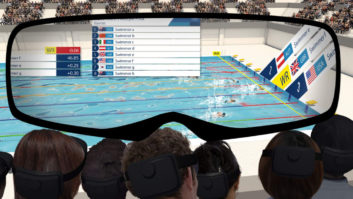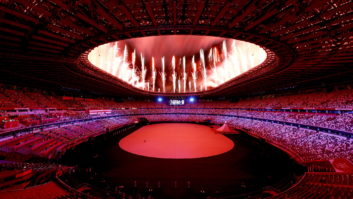Intel has announced its plans for next year’s Olympic Games in Tokyo, including using its Intel True VR to create content for rights-holding broadcasters.
The tech giant is partnering with the IOC, the Tokyo Organising Committee of the Olympic Games (Tokyo 2020) and a broad array of partners to drive the future of the Olympic Games Tokyo 2020 with new technology.
Among its plans is to deploy its Intel True VR technology in a range of sports and venues for the Games with the content being made available to rights-holding broadcasters. Currently, Intel plans to use the tech during the opening and closing ceremonies, athletics, gymnastics, boxing and beach volleyball.
The company will also implement its 3D Athlete Tracking technology, a first-of-its-kind computer vision solution using artificial intelligence to enhance the viewing experience with near real-time insights and overlay visualisations during athletic events.
Developed by Intel and hosted on the company’s data centres in Alibaba’s Cloud infrastructure, 3DAT, in partnership with Olympic Broadcast Services (OBS), uses four pan-tilt mounted, highly mobile cameras to capture the form and motion of athletes, then apply pose estimation algorithms, optimised for Intel Xeon processors, to analyse the biomechanics of athletes’ movements. The system transforms that data into broadcast overlay visualisations available during replays of the 100M and other events.







